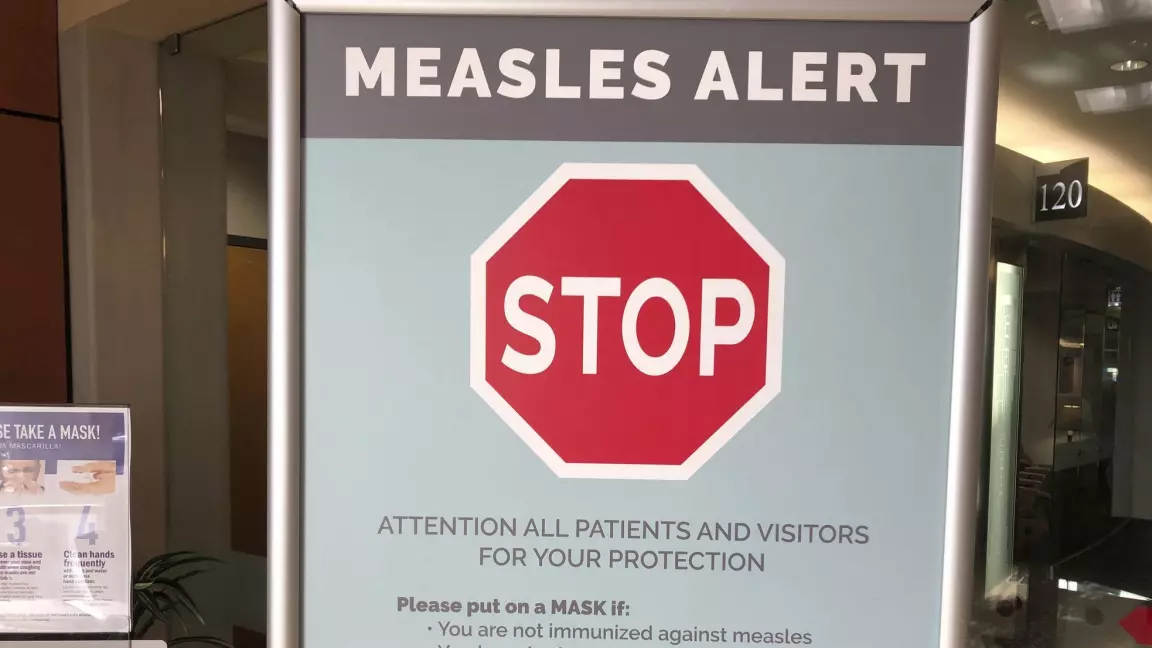Health
B.C. could allow outdoor gatherings, sports and some religious ceremonies in coming weeks – CTV News Vancouver

VANCOUVER —
Health officials in British Columbia could soon be easing some of the tough COVID-19 restrictions that have been in place across the province for months.
Provincial health officer Dr. Bonnie Henry said the government is considering a relaxation of restrictions over the coming weeks that could allow residents to return to sports, attend some religious ceremonies, and gather together outdoors.
“I’d like to think of it as slowly turning up the dial again, rather than flicking a switch, because we know that we’re not yet in a place where we can go back to our pre-pandemic gatherings,” Henry said.
“What we are looking at as we head into March break or spring break, at the end of this week and into next week, is seeing the return of things like gatherings outside where it’s safer.”
Henry did not provide any further details on what those outdoor gatherings could look like.
She did hint at the possibility families or small household groups would also be allowed to travel between different regions during March break, but stressed that people should avoid “places that are not yet ready to receive visitors.”
“The risk is different in different communities in this province and we need to be mindful of that,” she added.
The provincial health officer said the resumption of sports and certain religious events could also happen in the coming weeks. Though she did not provide a firm timeline, she suggested people could be sitting in pews for Easter.
‘We know there are many important dates coming up in many faiths, and we are working on how to best safely enable these important and critical celebrations in our religious life,” Henry said.
None of the restrictions have been relaxed yet.
Less than two weeks ago, Henry broke the news that B.C. was not ready to take its foot off the brakes, pointing to a number of alarming metrics that officials use to determine the severity of the pandemic.
Those included a gradually increasing seven-day average for new cases, and an increasing COVID-19 test positivity rate.
The weekly average has hovered around 500 per day since, and increased to 520 in recent days.
Henry said the continually expanded understanding of COVID-19 variants of concern, rising temperatures and the ramping up of the province’s immunization program are among the factors being weighed in the government’s decision-making.
“It continues to be true that outside is better than inside, bigger spaces are better than smaller spaces, and our layers of protection will still be needed, and still work, even with the increasing numbers of cases caused by more infectious variants,” she said.
“As we head into the spring and summer, we know that the transmissibility starts to fade, as well. These principles will be guiding our decisions in the coming weeks.”
Health
Quebec successfully pushes back against rise in measles cases – CBC.ca


Quebec appears to be winning its battle against the rising tide of measles after 45 cases were confirmed province-wide this year.
“We’ve had no locally transmitted measles cases since March 25, so that’s good news,” said Dr. Paul Le Guerrier, responsible for immunization for Montreal Public Health.
There are 17 patients with measles in Quebec currently, and the most recent case is somebody who was infected while abroad, he said.
But it was no small task to get to this point.
Le Guerrier said once local transmission was detected, news was spread fast among health centres to ensure proper protocols were followed — such as not letting potentially infected people sit in waiting rooms for hours on end.
Then about 90 staffers were put to work, tracking down those who were in contact with positive cases and are not properly vaccinated. They were given post-exposure prophylaxis, which prevents disease, said Le Guerrier.
From there, a vaccination campaign was launched, especially in daycares, schools and neighbourhoods with low inoculation rates. There was an effort to convince parents to get their children vaccinated.
Vaccination in schools boosted
Some schools, mostly in Montreal, had vaccination rates as low as 30 or 40 per cent.
“Vaccination was well accepted and parents responded well,” said Le Guerrier. “Some schools went from very low to as high as 85 to 90 per cent vaccination coverage.”
But it’s not only children who aren’t properly vaccinated. Le Guerrier said people need two doses after age one to be fully inoculated, and he encouraged people to check their status.
There are all kinds of reasons why people aren’t vaccinated, but it’s only about five per cent who are against immunization, he said. So far, some 10,000 people have been vaccinated against measles province-wide during this campaign, Le Guerrier said.
The next step is to continue pushing for further vaccination, but he said, small outbreaks are likely in the future as measles is spreading abroad and travellers are likely to bring it back with them.
Need to improve vaccination rate, expert says
Dr. Donald Vinh, an infectious diseases specialist from the McGill University Health Centre, said it’s not time to rest on our laurels, but this is a good indication that public health is able to take action quickly and that people are willing to listen to health recommendations.
“We are not seeing new cases or at least the new cases are not exceeding the number of cases that we can handle,” said Vinh.
“So these are all reassuring signs, but I don’t think it’s a sign that we need to become complacent.”
Vinh said there are also signs that the public is lagging in vaccine coverage and it’s important to respond to this with improved education and access. Otherwise, microbes capitalize on our weaknesses, he said.
Getting vaccination coverage up to an adequate level is necessary, Vinh said, or more small outbreaks like this will continue to happen.
“And it’s very possible that we may not be able to get one under control if we don’t react quickly enough,” he said.
Health
Pregnant women in the Black Country urged to get whooping cough vaccine – BBC.com


Pregnant women urged to get whooping cough vaccine
Pregnant women in the Black Country are being urged to get vaccinated against whooping cough after a rise in cases.
The bacterial infection of the lungs spreads very easily and can cause serious problems, especially in babies and young children.
The Black Country Integrated Care Board (ICB) is advising pregnant women between 16 and 32 weeks to contact their GP to get the vaccine so their baby has protection from birth.
The UK Health Security Agency warned earlier this year of a steady decline in uptake of the vaccine in pregnant women and children.
Symptoms of the infection, also known as “100-day cough”, are similar to a cold, with a runny nose and sore throat.
Sally Roberts, chief nursing officer for the ICB, which covers Wolverhampton, Dudley, Walsall and Sandwell, said anyone could catch it, but it was more serious for young children and babies.
“Getting vaccinated while you’re pregnant is highly effective in protecting your baby from developing whooping cough in the first few weeks of their life – ideally from 16 weeks up to 32 weeks of pregnancy,” she said.
“If for any reason you miss having the vaccine, you can still have it up until you go into labour.”
Follow BBC West Midlands on Facebook, X and Instagram. Send your story ideas to: newsonline.westmidlands@bbc.co.uk
Health
Measles cases stabilize in Montreal – CityNews Montreal


The number of measles cases has stabilized, according to the Montreal Public Health.
Since March 25, there have been no contaminations reported within the community.
“Our teams have identified all contact cases of measles,” said media relations advisor Geneviève Paradis. “It’s a laborious task: each measles case produces hundreds of contacts.”
All community transmission cases since February 2024 have been caused by returning travelers who were either unvaccinated or partially vaccinated.
Currently, there are 18 measles cases in Montreal – with 46 total in Quebec. This according to the April 18 figures from the provincial government.
“With the summer vacations approaching, if you’re travelling, it is essential to check if you are protected against measles,” explained Paradis.
According to Montreal Public Health, a person needs to have received two doses after the age of 12 months to be immunized against the virus.
They’ve launched a vaccination campaign throughout the region, and currently, 11,341 people have been vaccinated against measles in Montreal between March 19 and April 15.
Vaccination is also being provided in schools and at local service points.
“The vaccination operation is under the responsibility of the five CIUSSS of the territory,” concluded Paradis.
-



 Tech18 hours ago
Tech18 hours agoCytiva Showcases Single-Use Mixing System at INTERPHEX 2024 – BioPharm International
-
News20 hours ago
Tim Hortons says 'technical errors' falsely told people they won $55K boat in Roll Up To Win promo – CBC.ca
-



 Politics23 hours ago
Politics23 hours agoFlorida's Bob Graham dead at 87: A leader who looked beyond politics, served ordinary folks – Toronto Star
-



 Science23 hours ago
Science23 hours agoRecord breaker! Milky Way's most monstrous stellar-mass black hole is sleeping giant lurking close to Earth (Video) – Space.com
-



 Health14 hours ago
Health14 hours agoSupervised consumption sites urgently needed, says study – Sudbury.com
-



 Tech20 hours ago
Tech20 hours agoAaron Sluchinski adds Kyle Doering to lineup for next season – Sportsnet.ca
-
News13 hours ago
2024 federal budget's key takeaways: Housing and carbon rebates, students and sin taxes – CBC News
-
Tech19 hours ago
Nintendo Indie World Showcase April 2024 – Every Announcement, Game Reveal & Trailer – Nintendo Life







